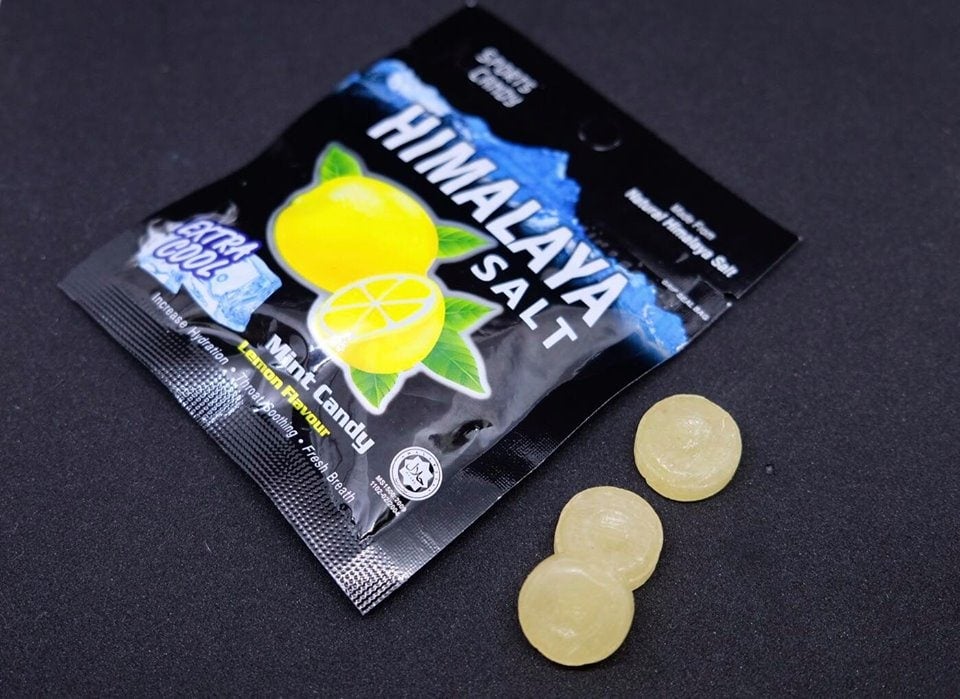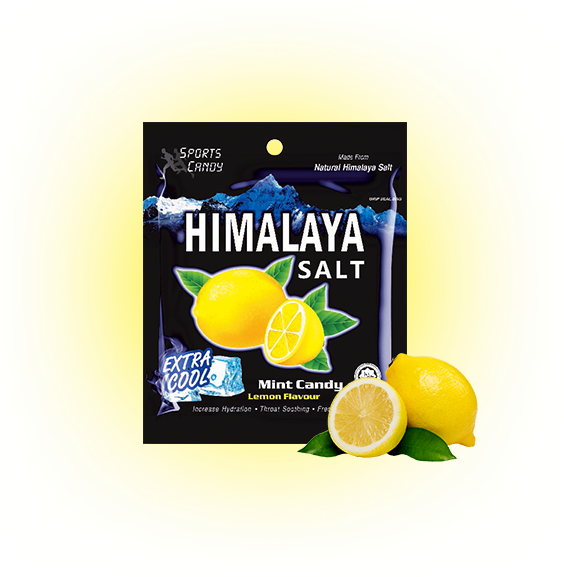We’ve all heard or read somewhere before that “too much salt is bad for the body” or “too much of it will cause high blood pressure”. While those statements are common, let’s be honest, too much of anything can be bad for the body, am I right? What many Malaysians don’t realise, however, is that salt is actually NEEDED by our bodies to function properly. So if you thought cutting salt out of your diets completely would be a good idea, think again.

Before we get into the benefits of salt and how it isn’t actually the sole cause of high blood pressure, here’s a brief explanation on what salt actually is: based on Medical News Today, salt, in general terms, is a type of mineral consisting of sodium and chloride (NaCI). It’s also one of the key electrolytes’ minerals for the body. It’s found in large quantities in seawater and is often used as seasonings and food preservation.
So why is salt crucial to the human body? Here’s are some reasons:
1. Lack of salt can cause your heart and kidneys to be unable to function properly

Cutting salt out of your diet can actually deplete the energy of your kidneys and your heart, causing many issues including:
- Increased heart rate
- Low blood pressure
- Cardiac arrhythmias
- Reduced blood and oxygen circulation throughout the body
- Increased risk of having a heart attack, and more
2. Salt helps PREVENT dehydration

Contrary to popular belief, salt doesn’t actually cause dehydration, it prevents it!
In fact, salt is needed to help regulate fluid levels in the human body. The balance between the sodium and potassium ions in salt help your cells maintain water balance and thus, prevents dehydration.
This is one of the reasons we generally feel thirstier after a vigorous activity that causes us to sweat more than usual; and unbeknownst to many, salt is also needed in order for us to sweat adequately while doing sports or other outdoor activities. This helps keep our bodies cool and prevent heatstrokes.
However, this also means that we often lose too much salt too quickly when we sweat, and if we have insufficient levels of salt in our bodies, this can lead to:
- Dehydration
- Tremors
- Muscle weakness
- Cramps
- Cardiac arrhythmias, and more
And that’s often why we feel exceptionally thirsty after a sweat sesh. That’s typically your body’s way of asking to be rehydrated and to prevent any of the above from happening. But next time, before you down an entire bottle of water (and still feel thirsty after), try and increase your salt intake or have some sports candy instead and you may find yourself feeling less thirsty after.
3. Nerve and muscle functions can also be affected when your body lacks salt

This is also why some individuals tend to get cramps or joint aches after a long run or other sports activities. When you sweat profusely, your blood sodium levels drop and your body lacks the electrolytes it needs to balance out sodium levels, this is known as hyponatremia. This occurrence will cause:
- Muscle cramps
- Twitching
- Issues with nerve and muscle functions, and more.
This is another reason so many isotonic drinks (a.k.a electrolyte drinks) and sports candies out there contain sodium chloride as it helps your body maintain its sodium levels and avoid issues with your nerve and muscle functions. Lack of sodium or electrolytes can also cause you to feel tired faster.
So if you feel lethargic all the time or even if you feel a cramp coming on, be sure to pop some sports candy into your mouth.
4. More than anything, LACK of salt can also increase heart rate & affect your blood pressure

Although we’re accustomed to the idea that “salt causes high blood pressure”, this hypothesis has never truly been proven. In fact, recent researches, have actually debunked such a claim.
In fact, a study done by Dr. James DiNicolantonio, the author of The Salt Fix, found that the blood pressure readings were not at all affected by salt consumption. These were his findings based on three different groups of people:
- Group A (normal blood pressure): 80% of them weren’t affected by salt at all
- Group B (early stages of high blood pressure): 75% of them weren’t affected by salt at all
- Group C (high blood pressure patients): 55% of them weren’t affected by salt at all
The study also found that those who actually tried restricting their salt intake caused their bodies to go into rescue mode to try and retain more salt in the body. This rescue mode generally activates two particular systems known as the renin-angiotensin-aldosterone system (known for increasing blood pressure) and sympathetic nervous system (known for increasing heart rate). Long story short, the ultimate physiological purpose of sodium in salt is, in fact, to help maintain your blood pressure (and lack of it will increase your blood pressure).
But the question remains, if salt isn’t the main cause of high blood pressure? What is?
Now that we’ve debunked the idea that salt is the main cause of high blood pressure, here’s a list of other causes that can lead to high blood pressure:
- Smoking
- High cholesterol
- Being overweight or obese
- High alcohol consumption
- Stress
- Old age
- Genetics & family history
- Lack of sleep
- Adrenal or thyroid disorders
- Kidney disease
- Excessive amounts of salt
Just either one of these can cause your blood pressure to shoot up drastically. Salt or sodium, on the other hand, probably won’t even make much of a difference unless you suddenly cut down or take excessive amounts of it.
FYI, new research has found that your body requires at least 3,000 to 6,000 milligrams of sodium to ensure your body functions at an optimal state. And while that doesn’t sound like much, a bit extra salt in your daily diet will still probably help you live longer as opposed to too little salt.
Even if you do ingest more than the recommended amount of salt, approximately 93% of dietary sodium would be excreted from your body, through your urine, every 24 hours! Caffeinated drinks like coffee, tea or even excessive amounts of water can also help to further dilute the salt content in your system, so there’s really nothing to be concerned about.
We are essentially salty people. Our tears, sweat, even the cells in our bodies all contain salt.
And the truth of the matter is this: Without salt, we simply would not be able to live.
But of course, make sure you pick the good type of salt to consume!

If you want to make sure the salt you’re consuming daily isn’t some cheap, chemical-filled product, make sure you give Himalayan salt a try! Besides containing all the above-mentioned benefits of salt, Himalayan salt also has:
- no additives and is a much more natural form of salt
- been used for therapies to aid dry skin and purify indoor air
- the ability to aid hydration
And so much more! So the next time you go grocery shopping, steer clear of your regular white table salt and pick up a bag of Himalayan salt instead!
If you’re not the type who cooks at home but still need your daily dose of Himalayan salt, be sure to check out the Himalaya Salt Sports Candy!
This is especially perfect for those of you who enjoy a good sweat session or just love having something to suck on. The Himalaya Salt Sports Candy isn’t just delicious, it also:
- Improves hydration & replenishes your lost salts
- Soothes the throat
- Gives you fresh breath

And the best part is, the Himalaya Salt Sports Candy only contains about 19 milligrams of salt per piece (1 serving). That’s only 0.019 grams! Your favourite keropok or Isotonic drink easily contains over two times more sodium in one serving value as compared to these candies.
So the next time you need a salty pick-me-up or you’re just looking for something to soothe your tastebuds, be sure to check out Himalaya Salt Sports Candy.









































